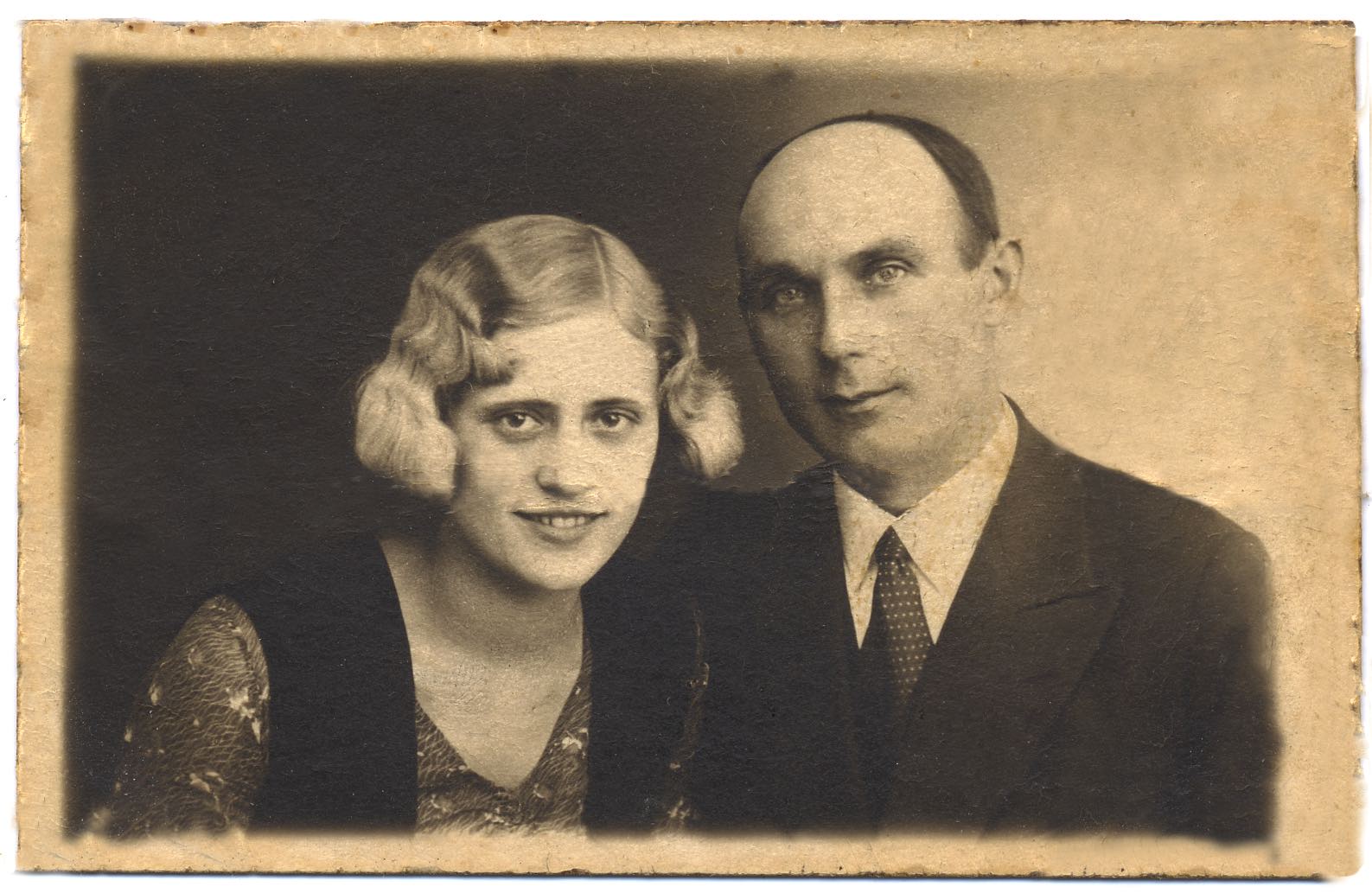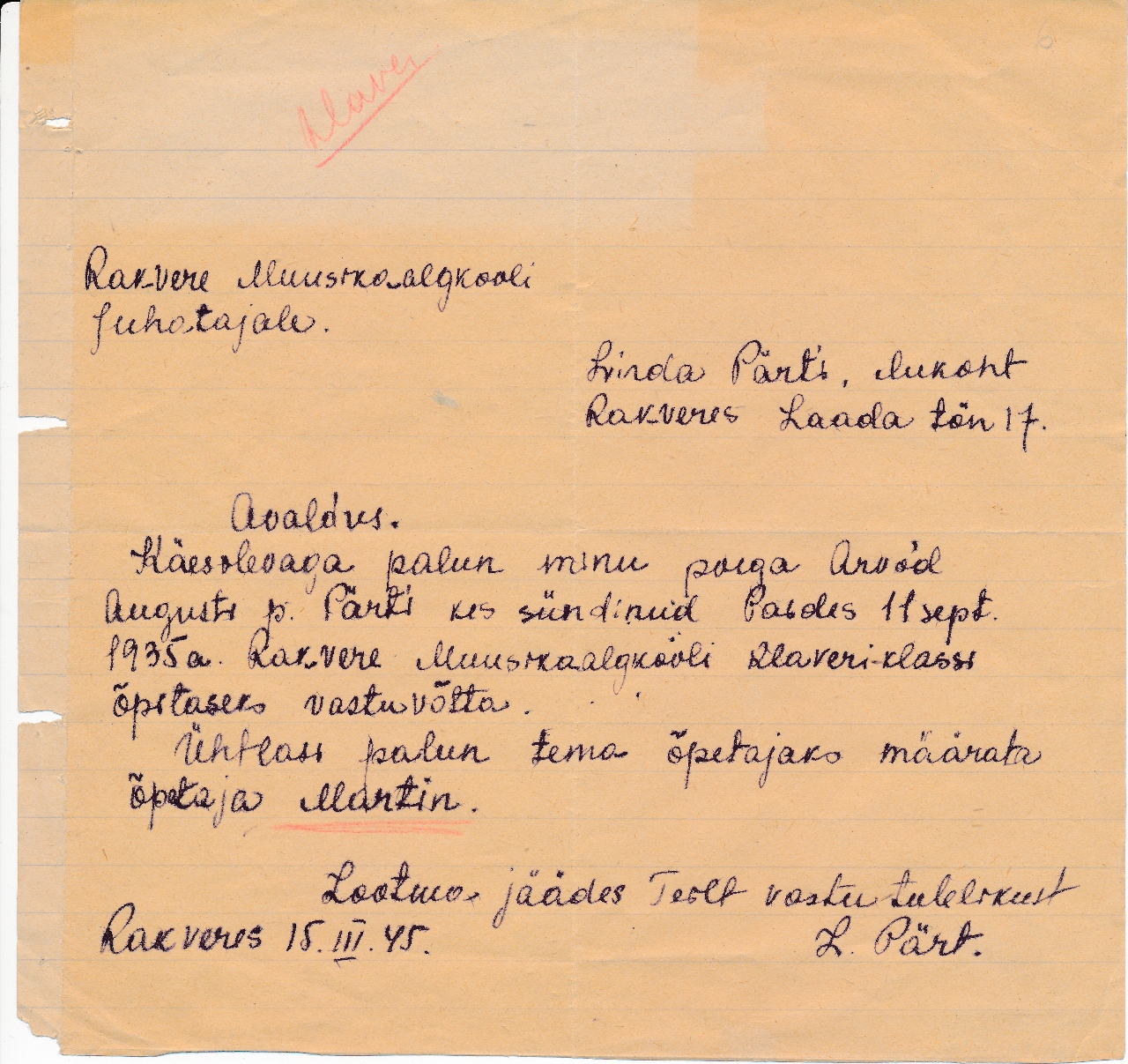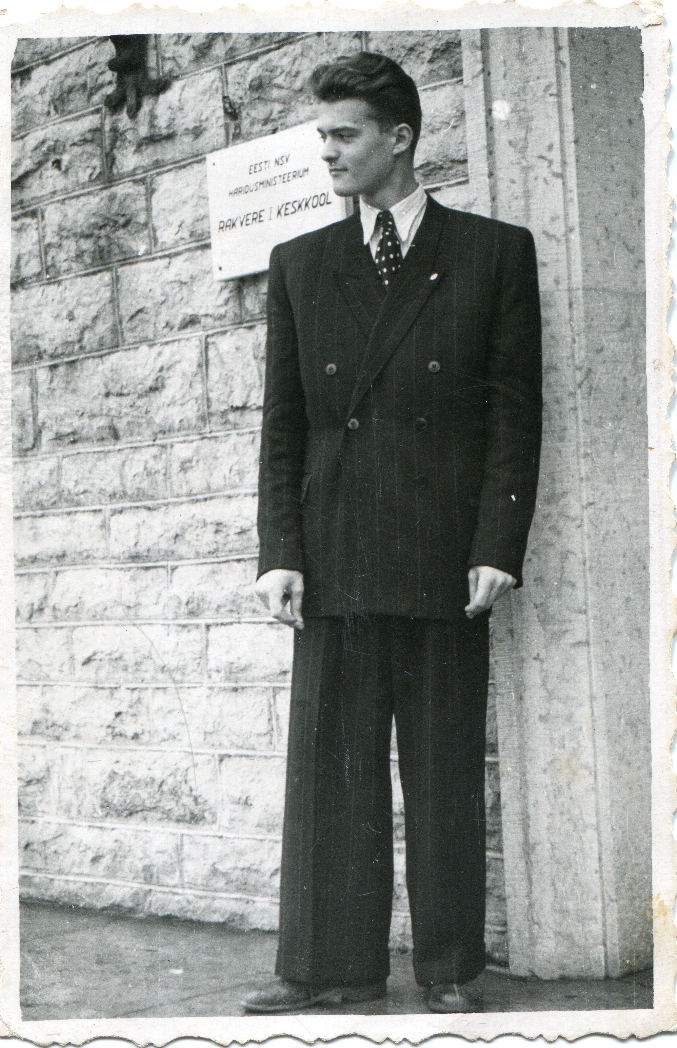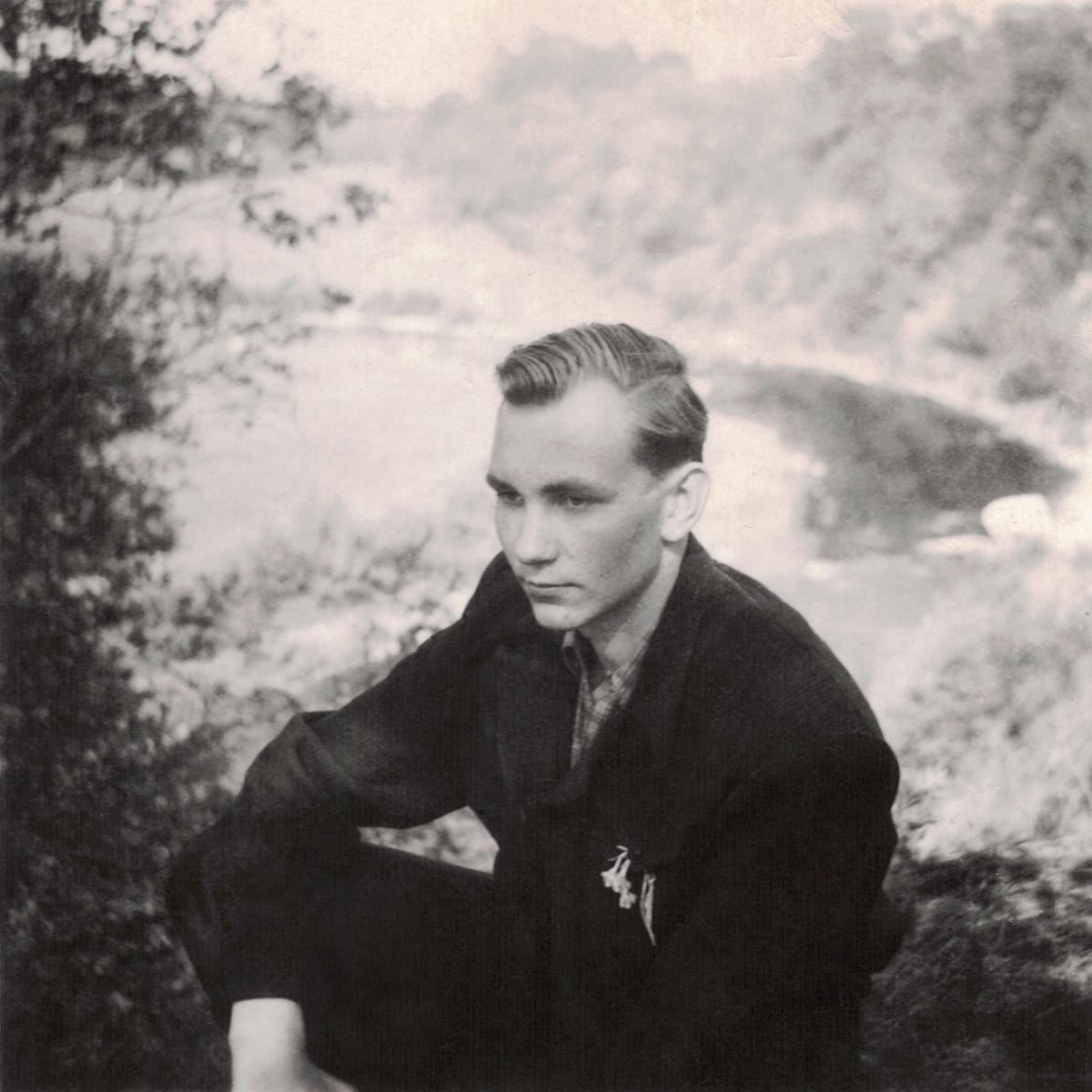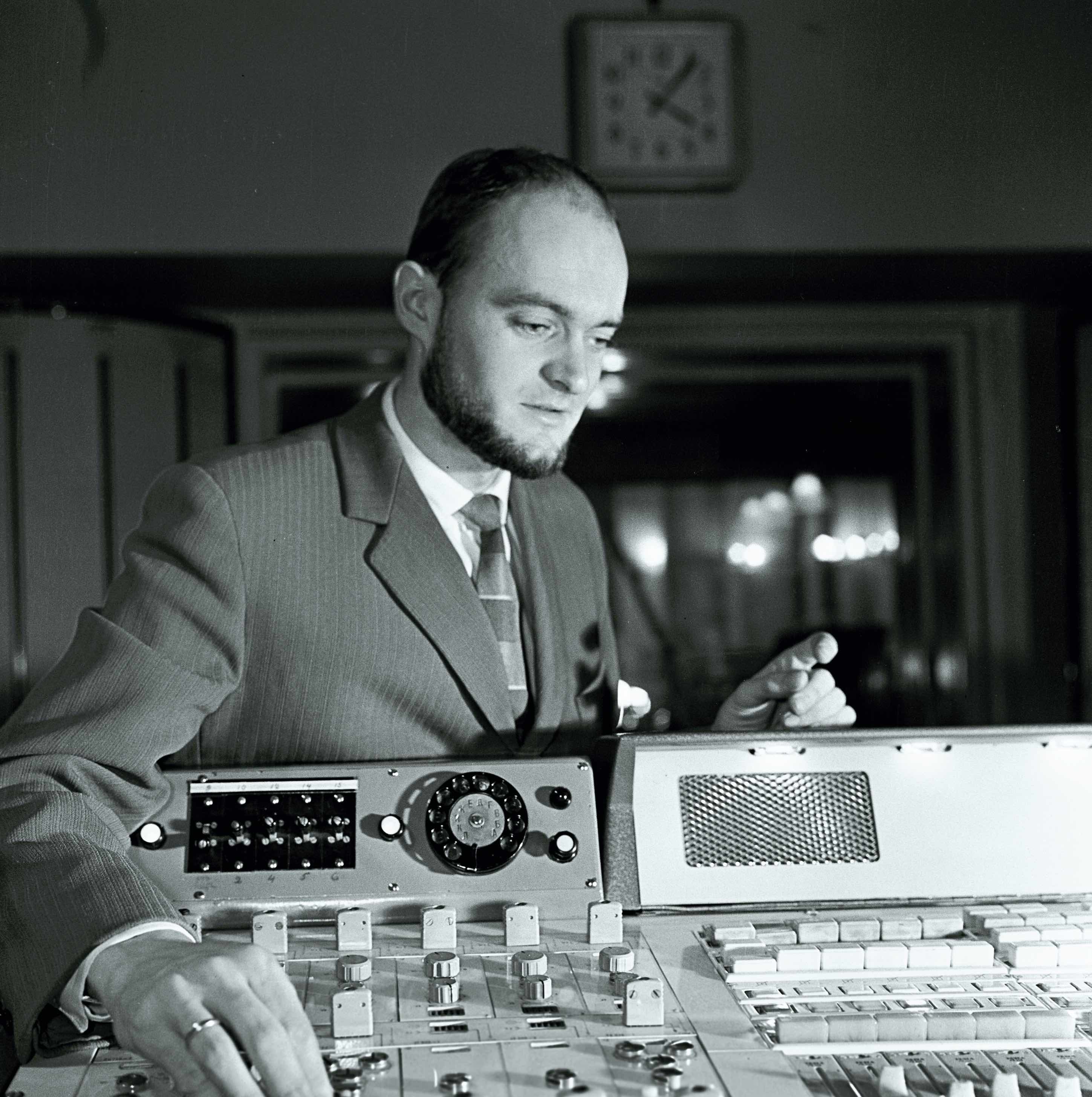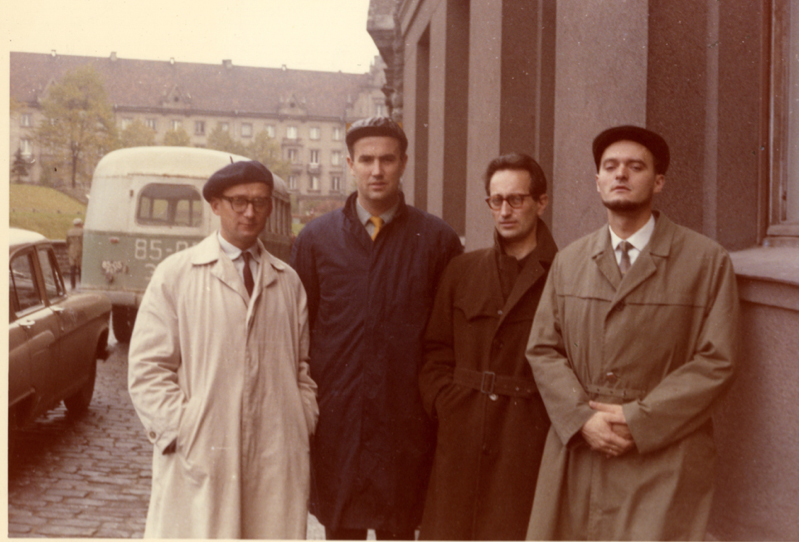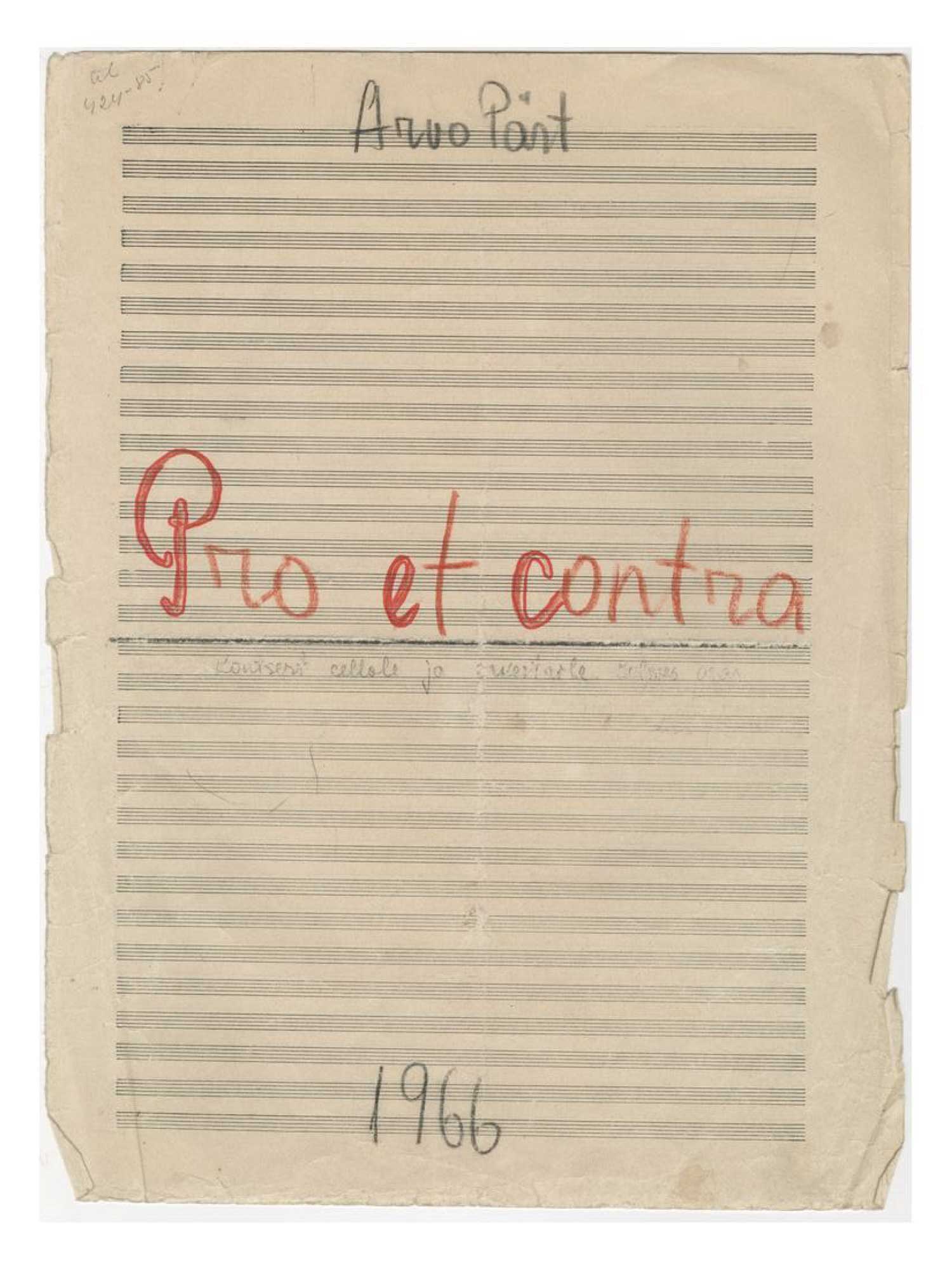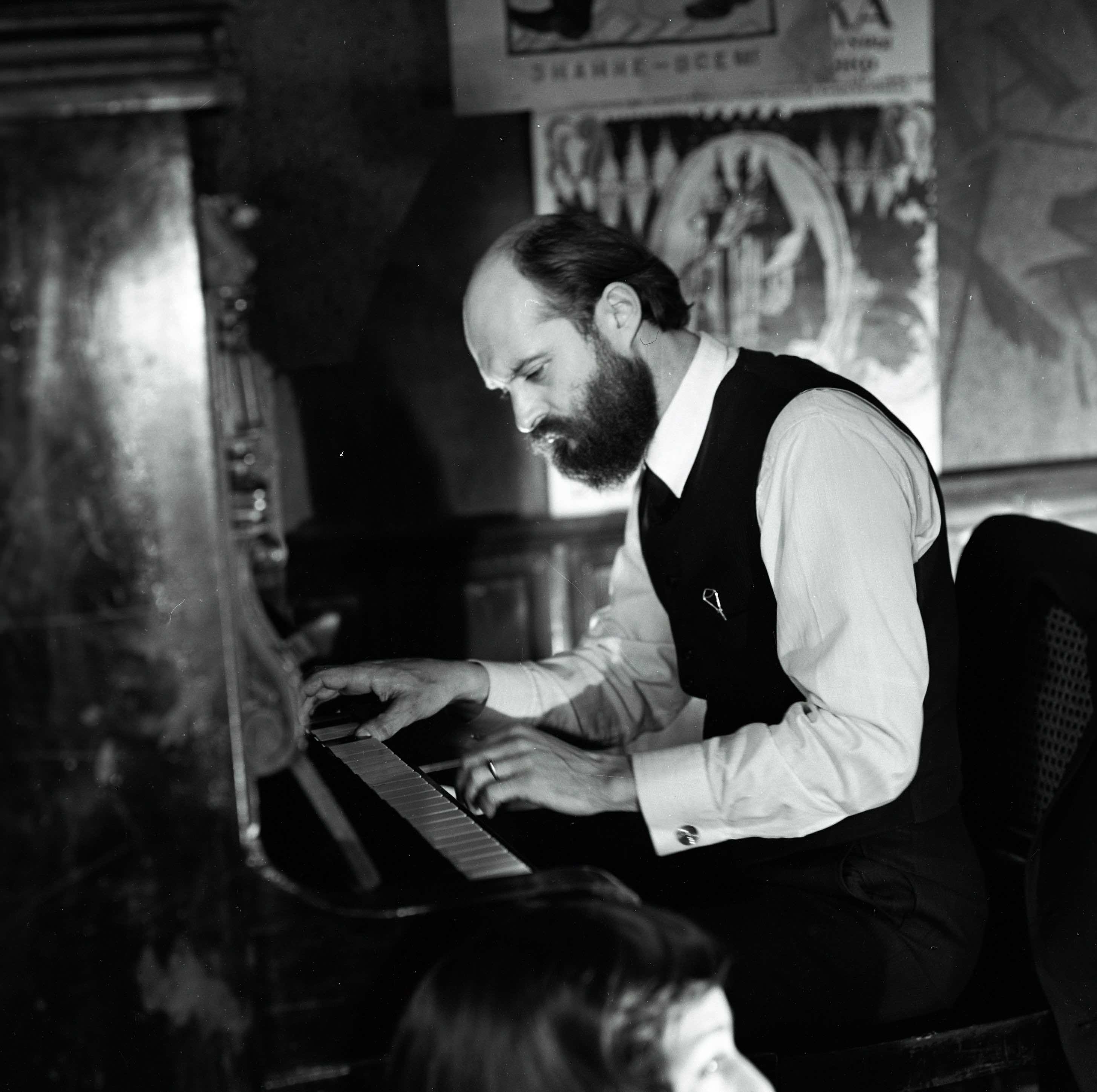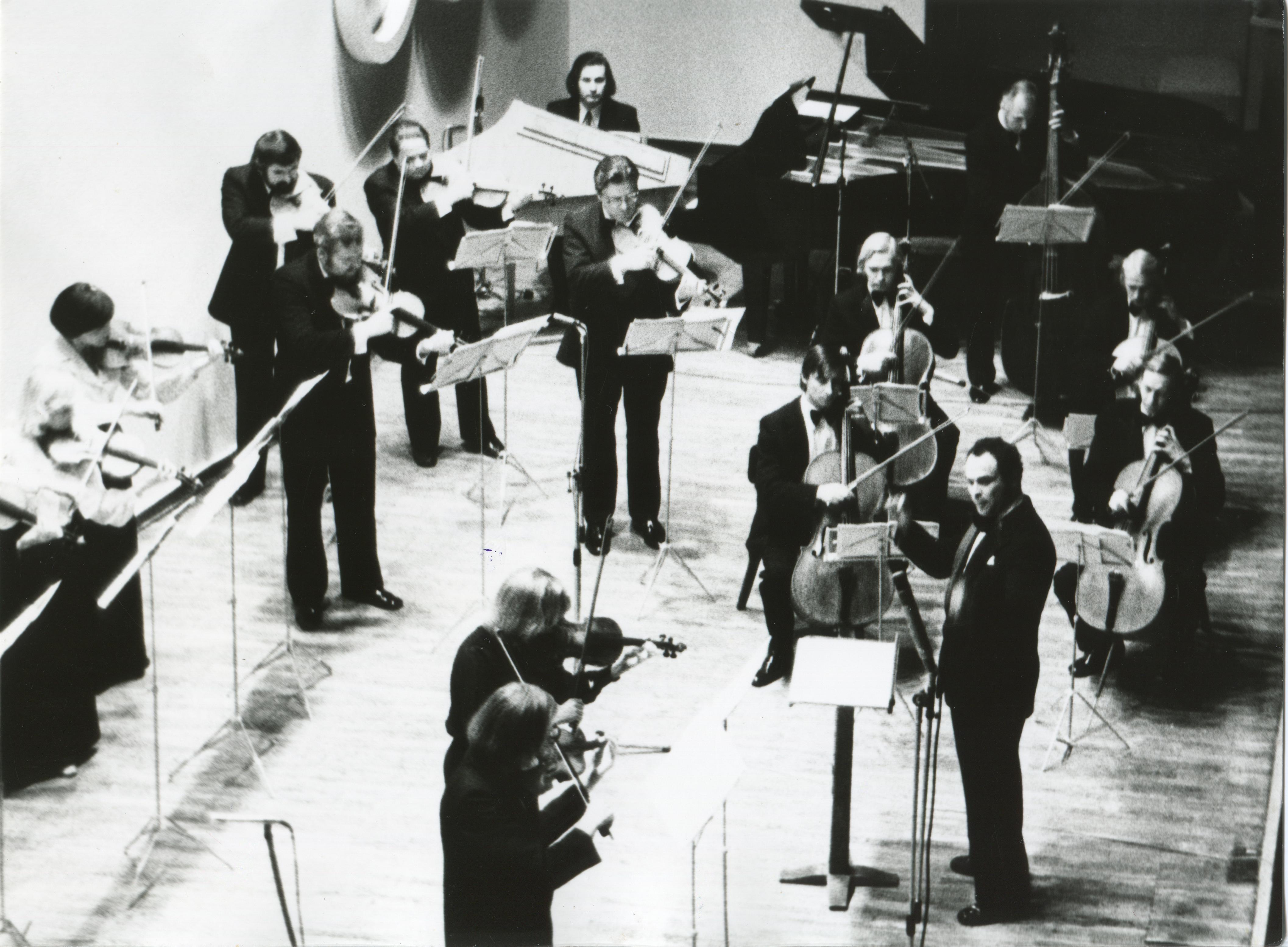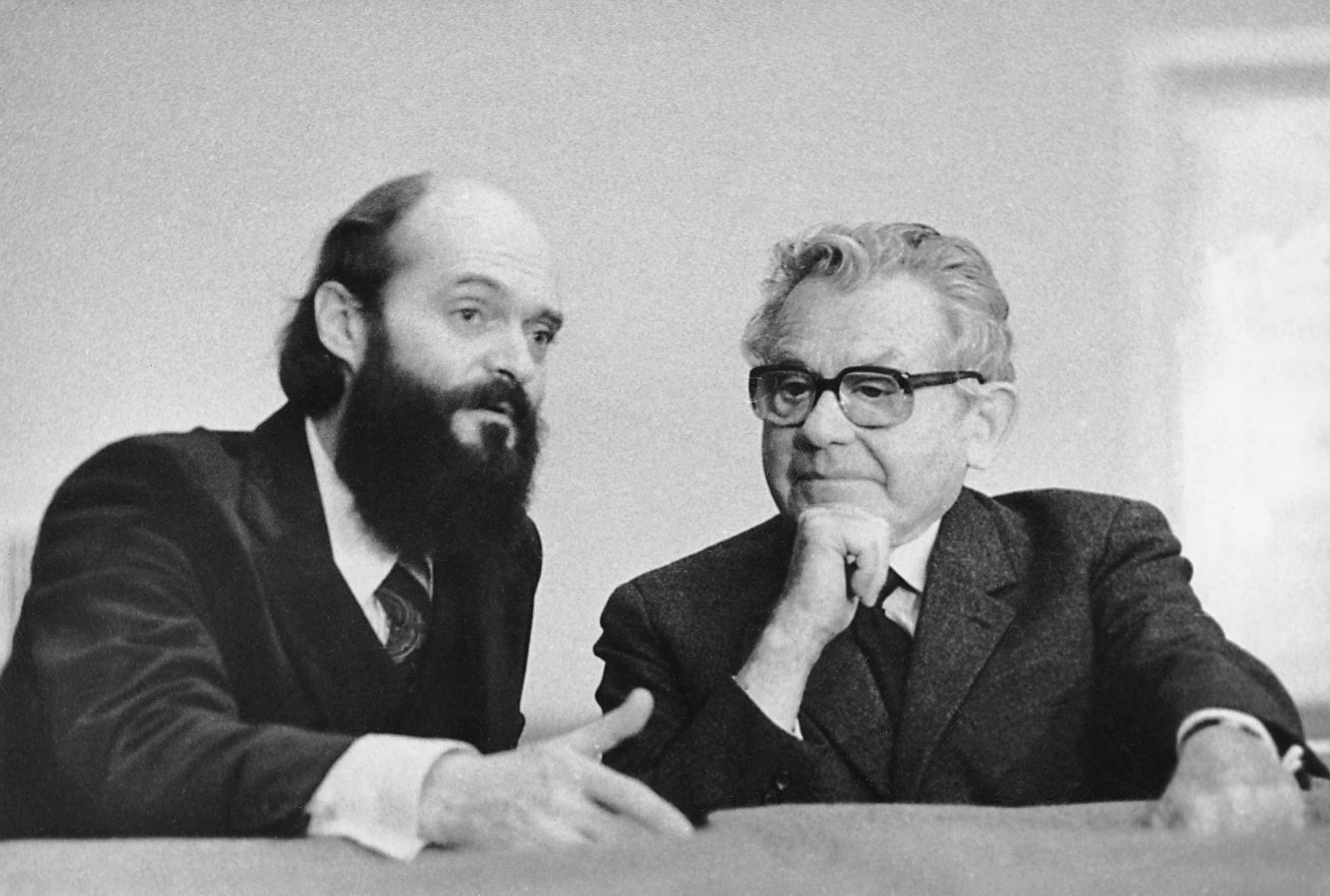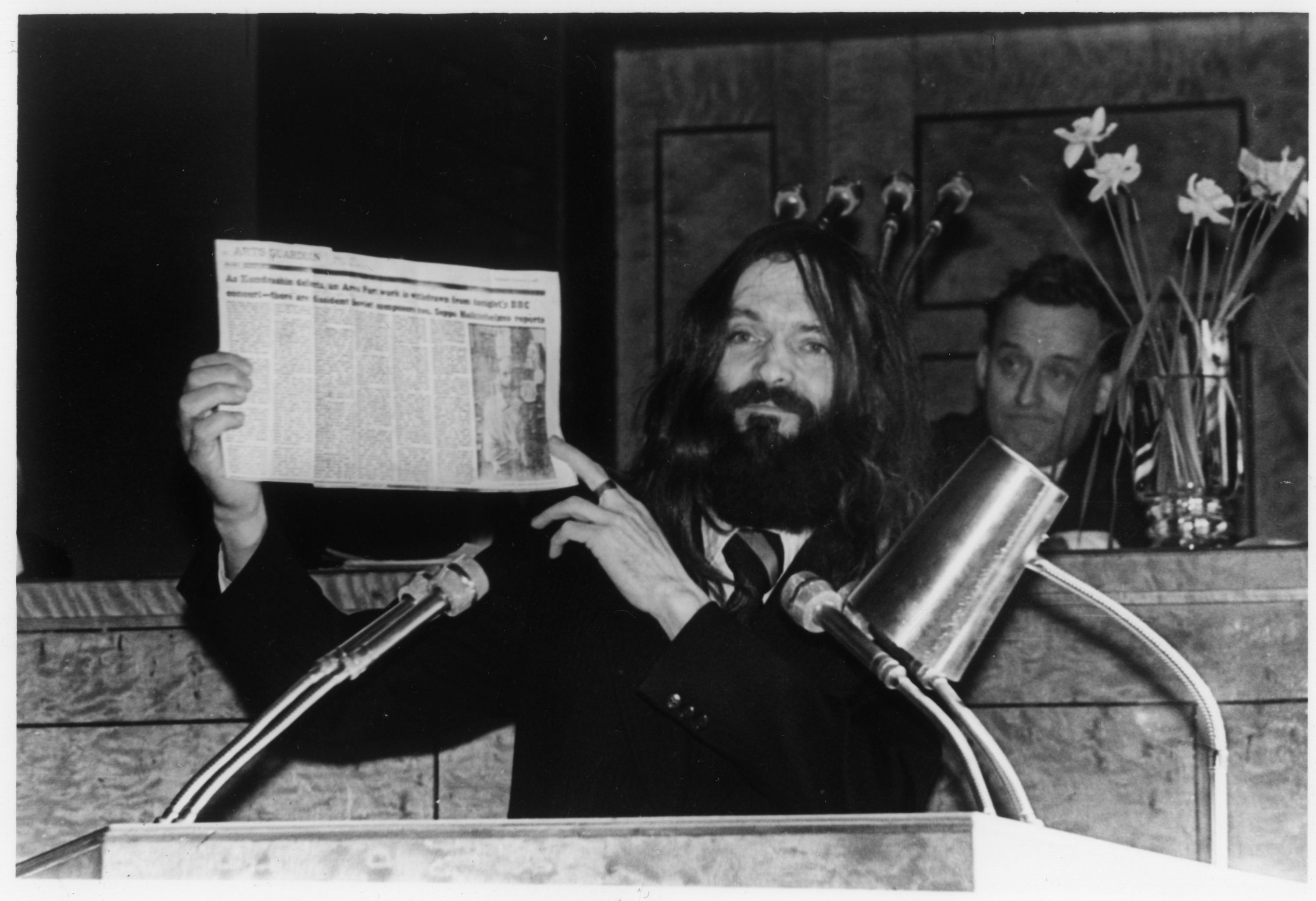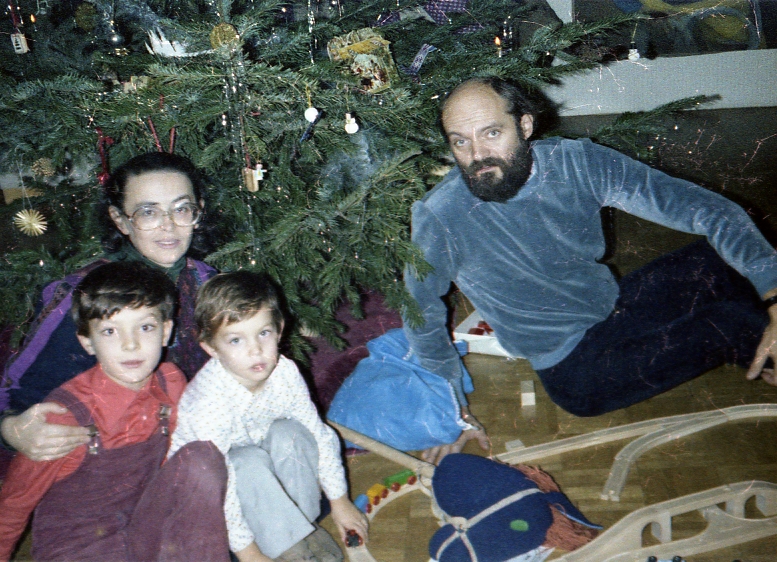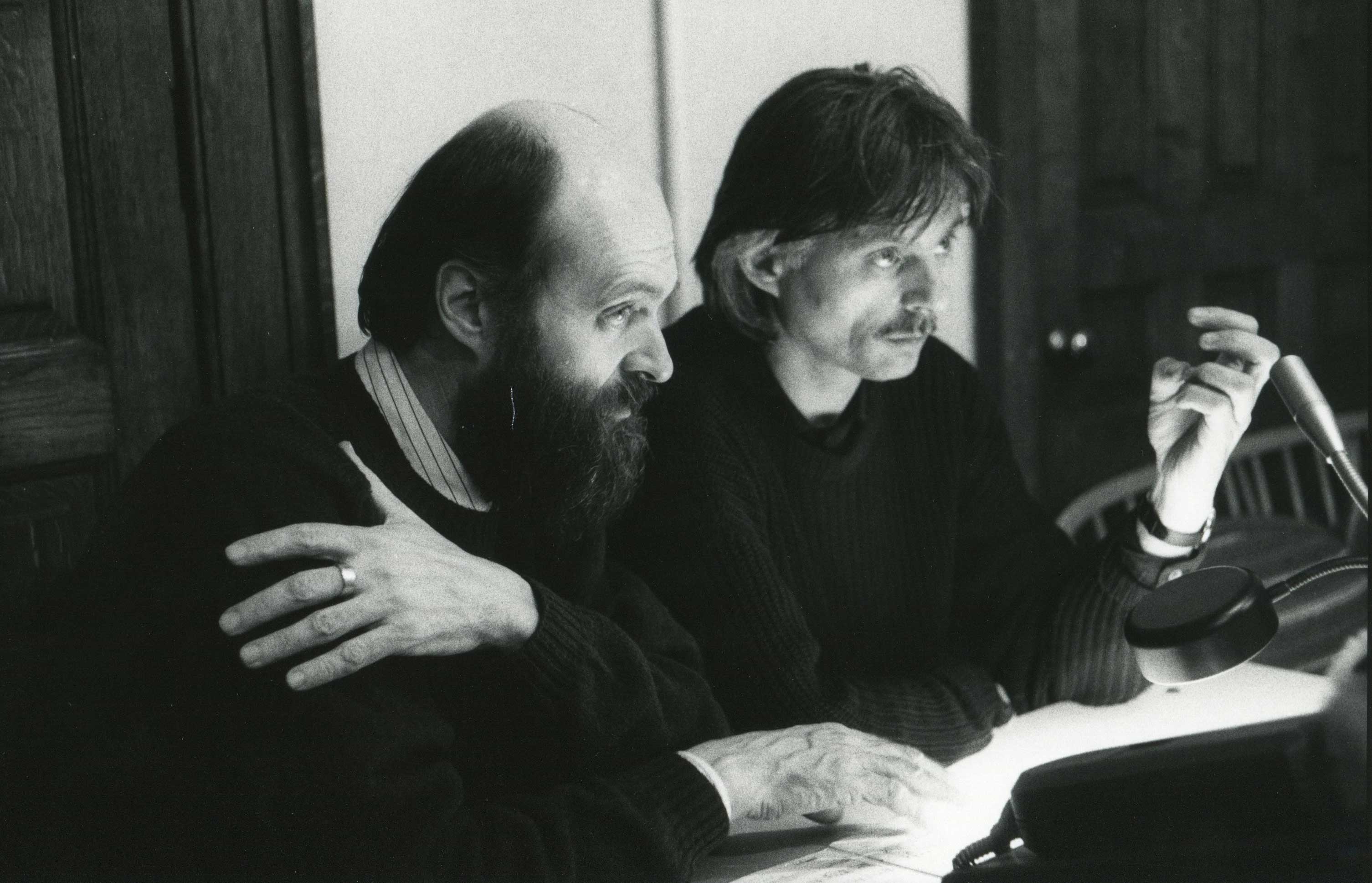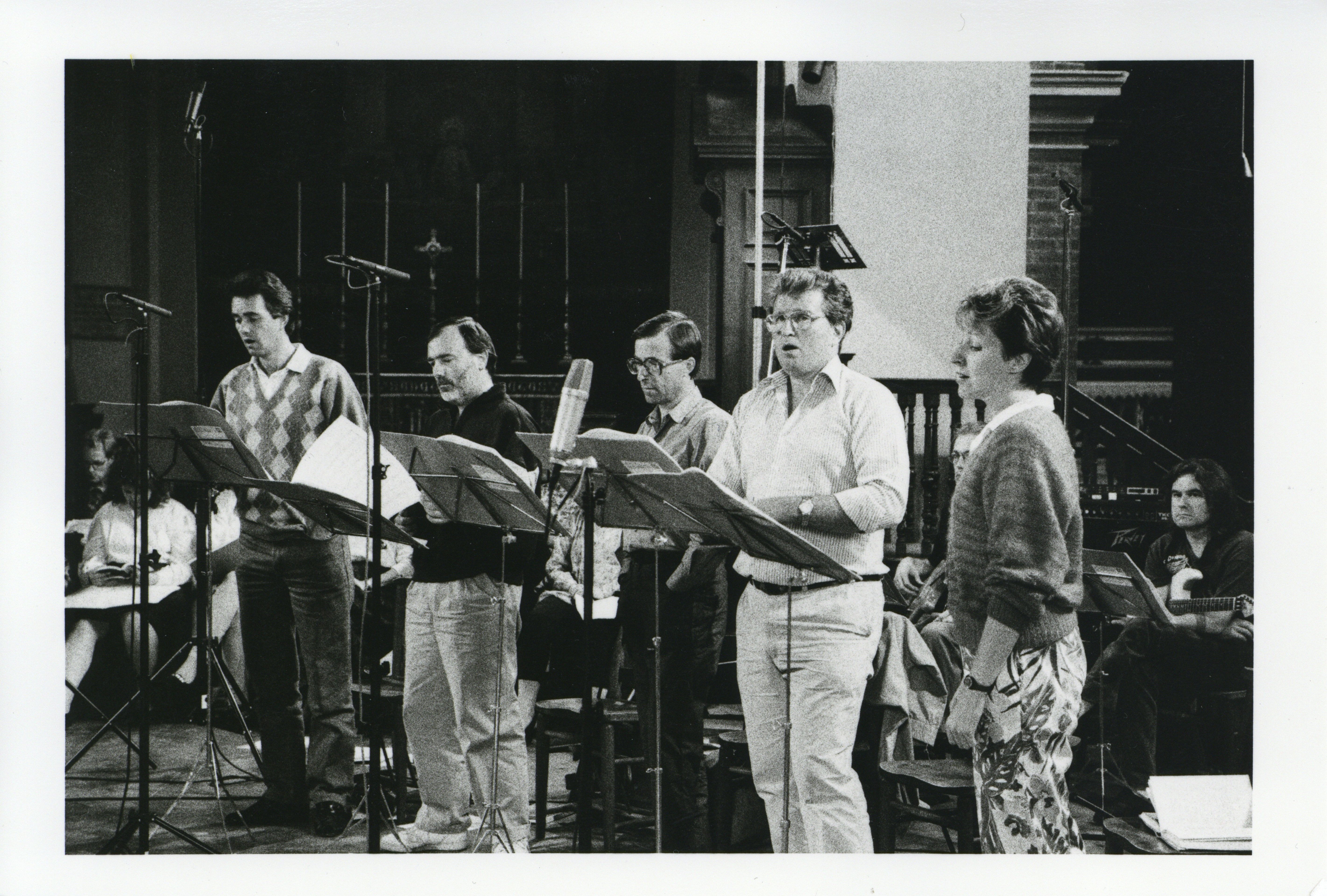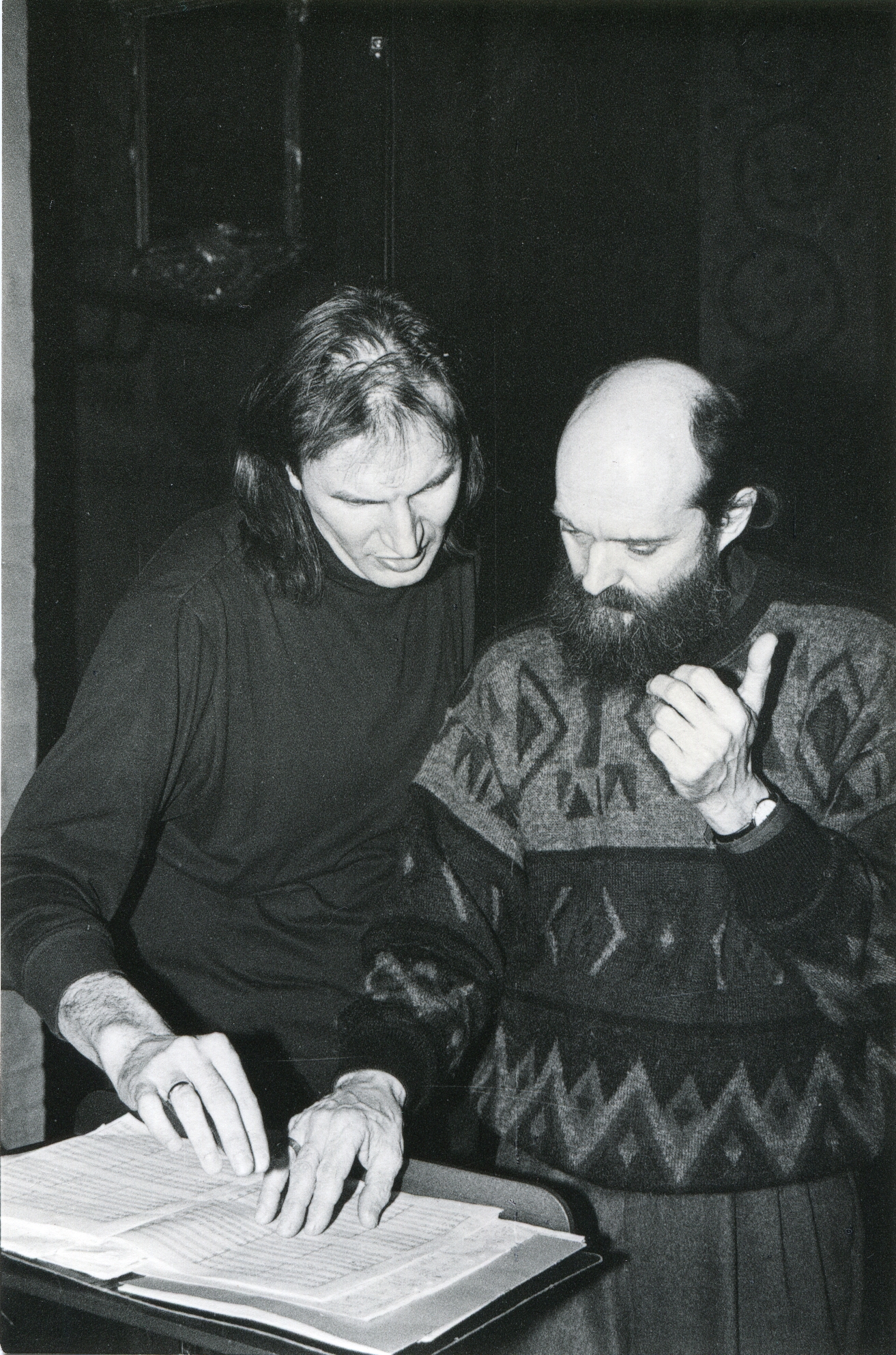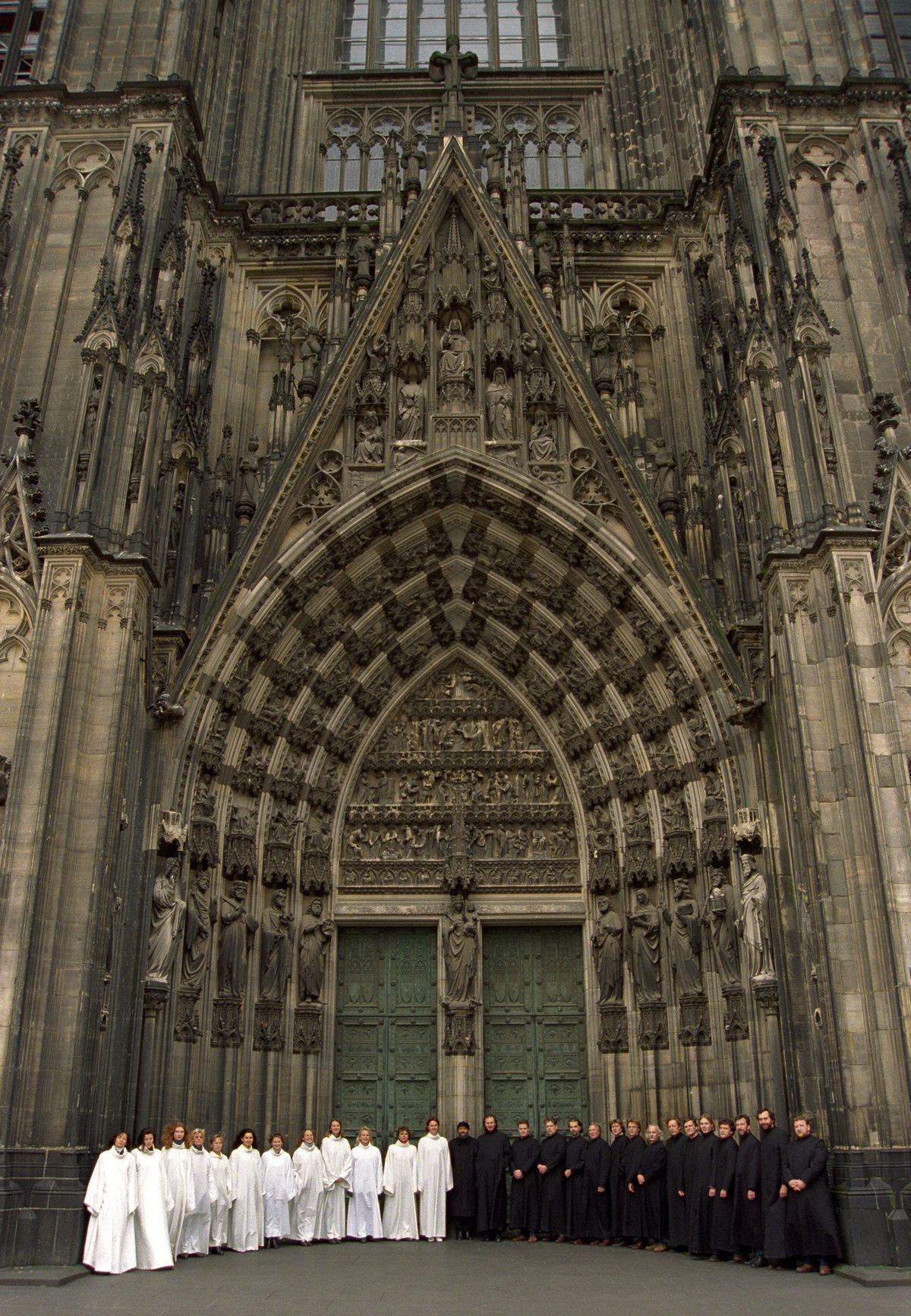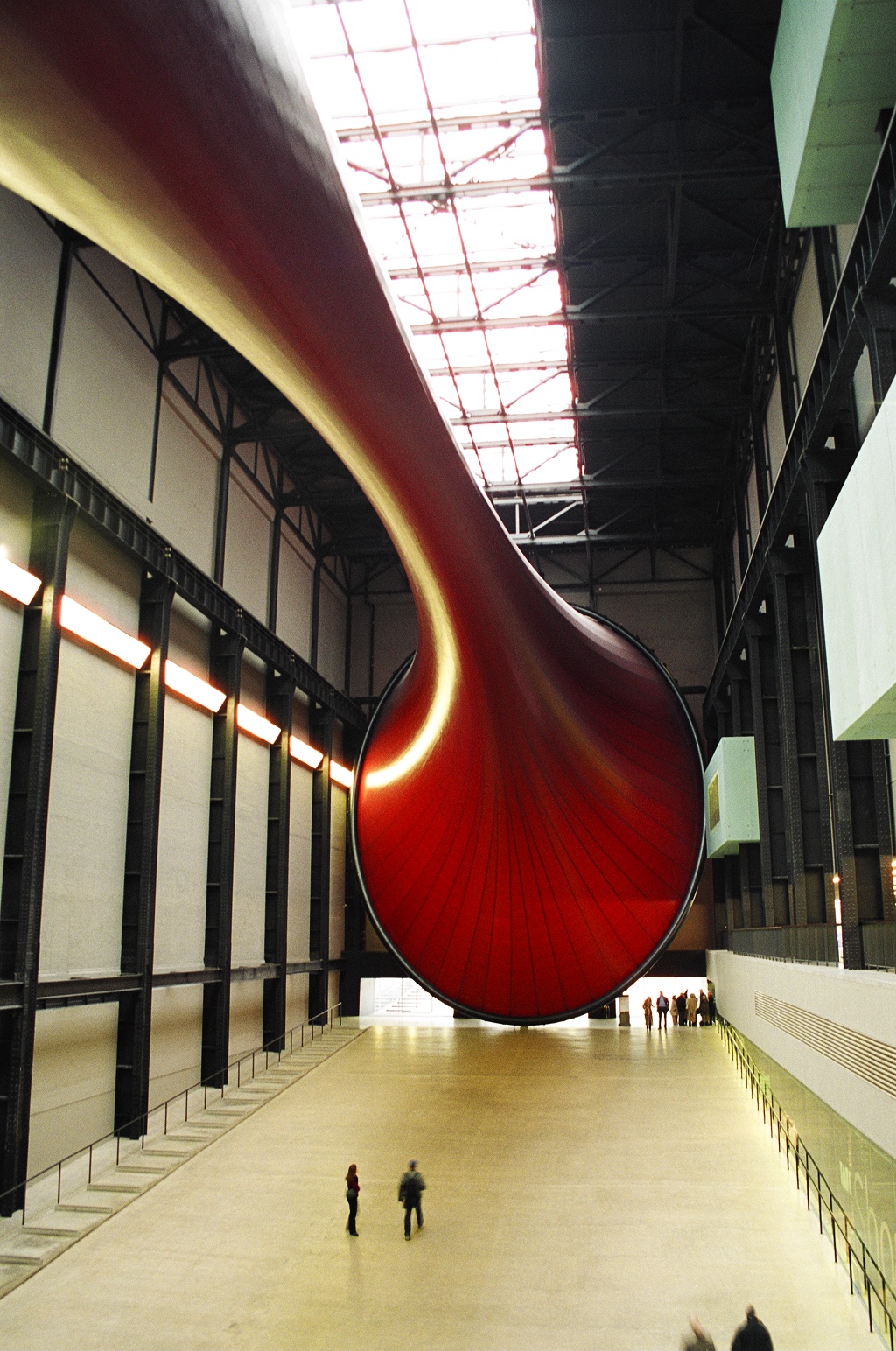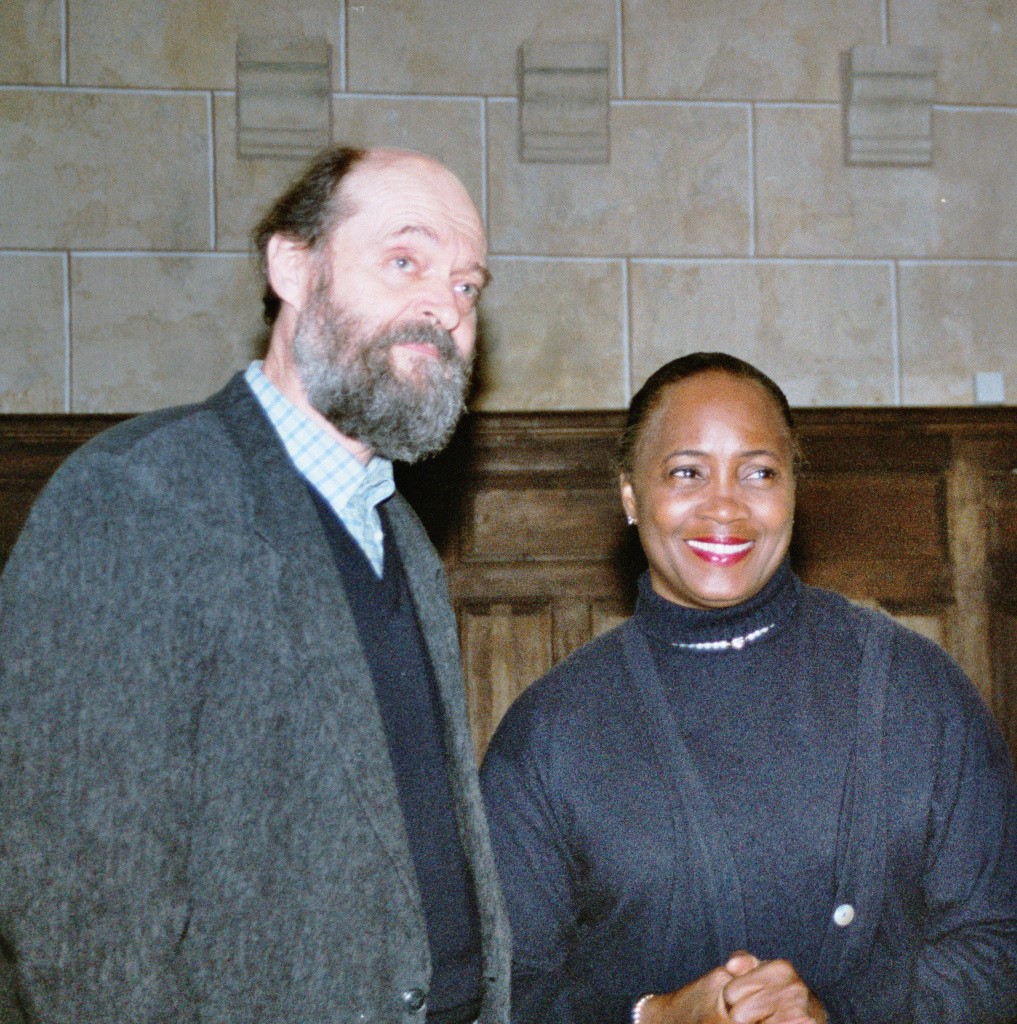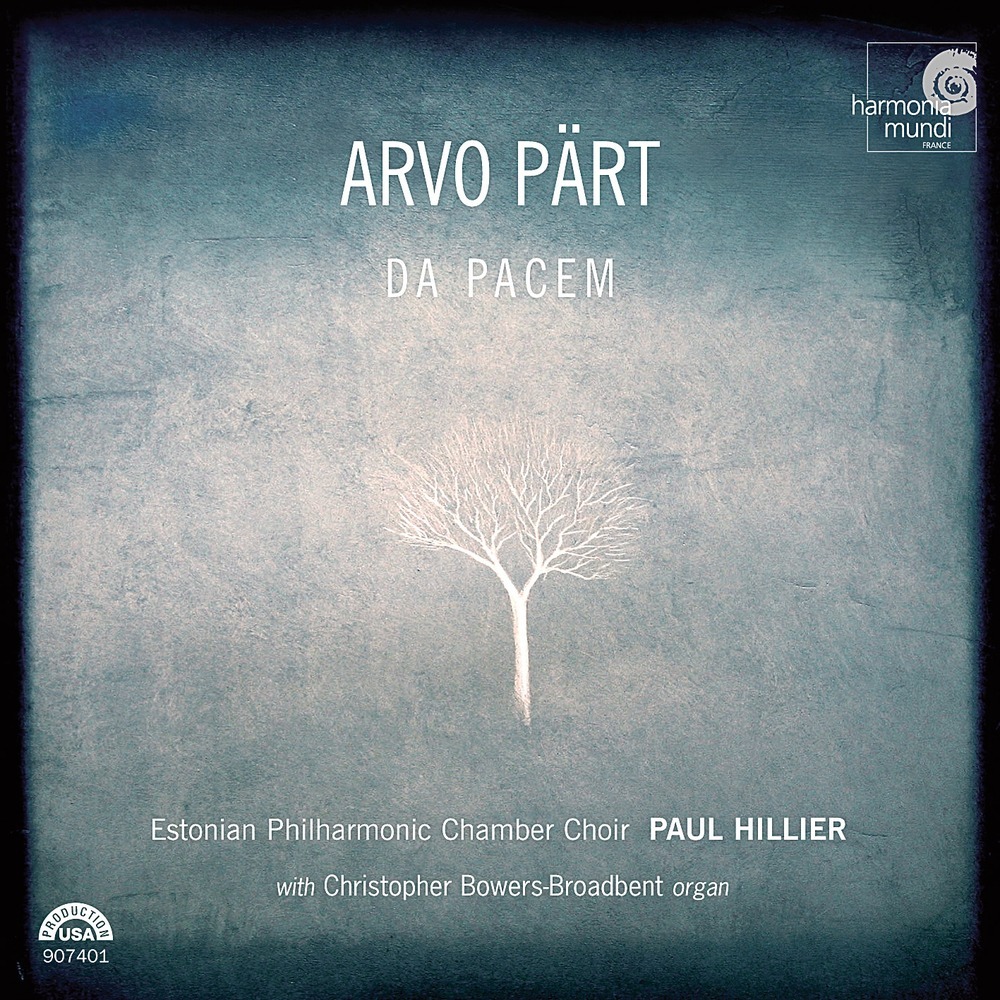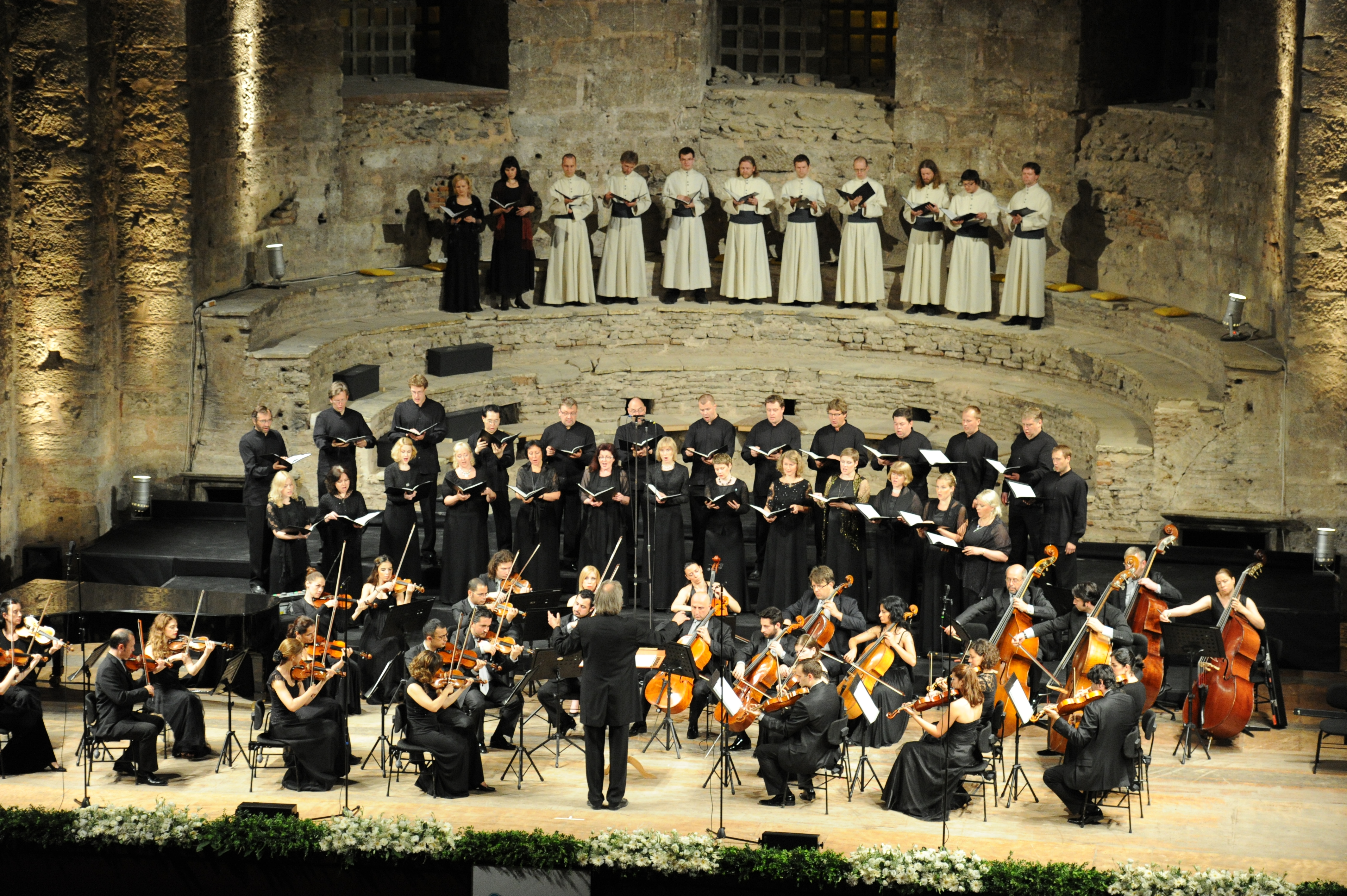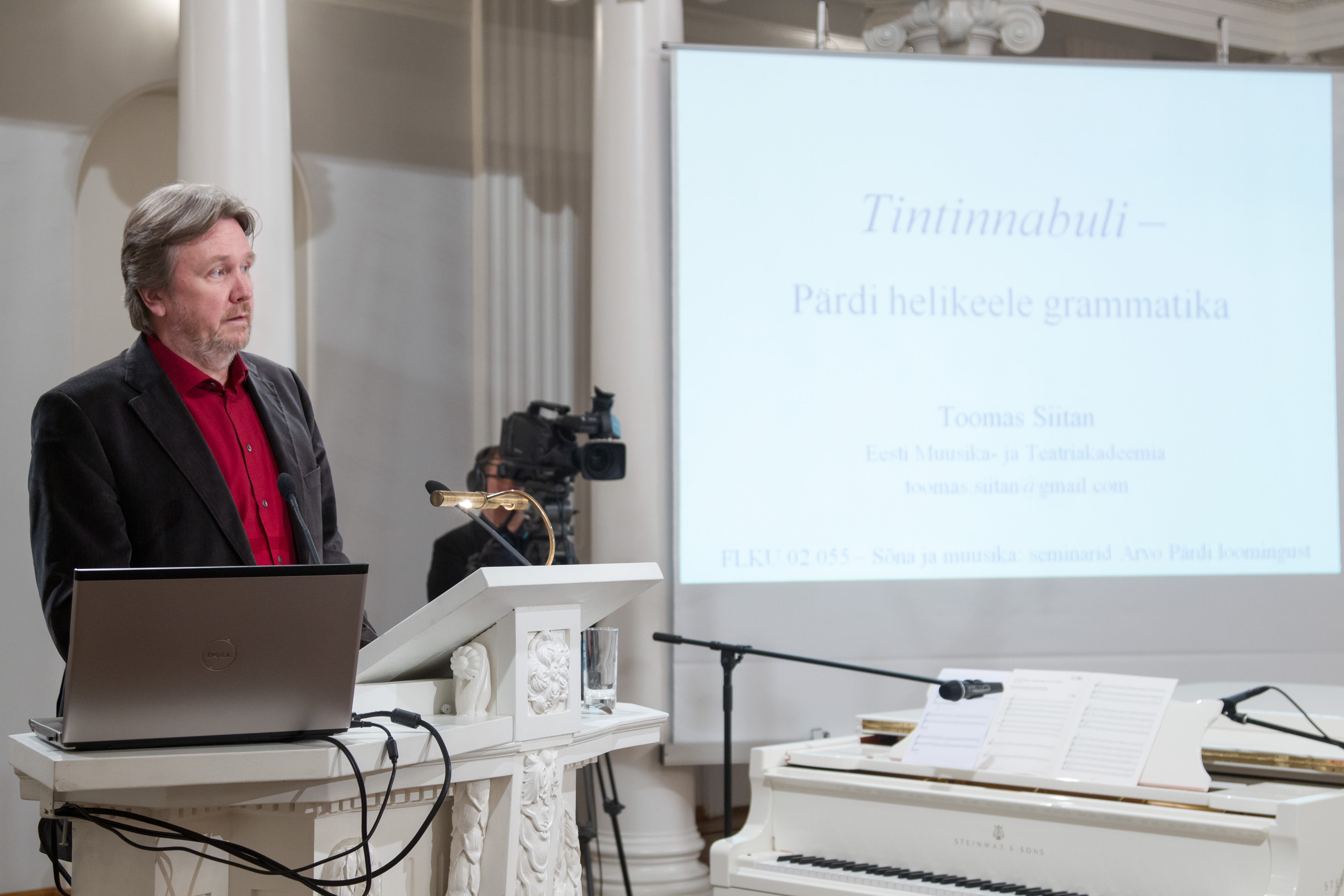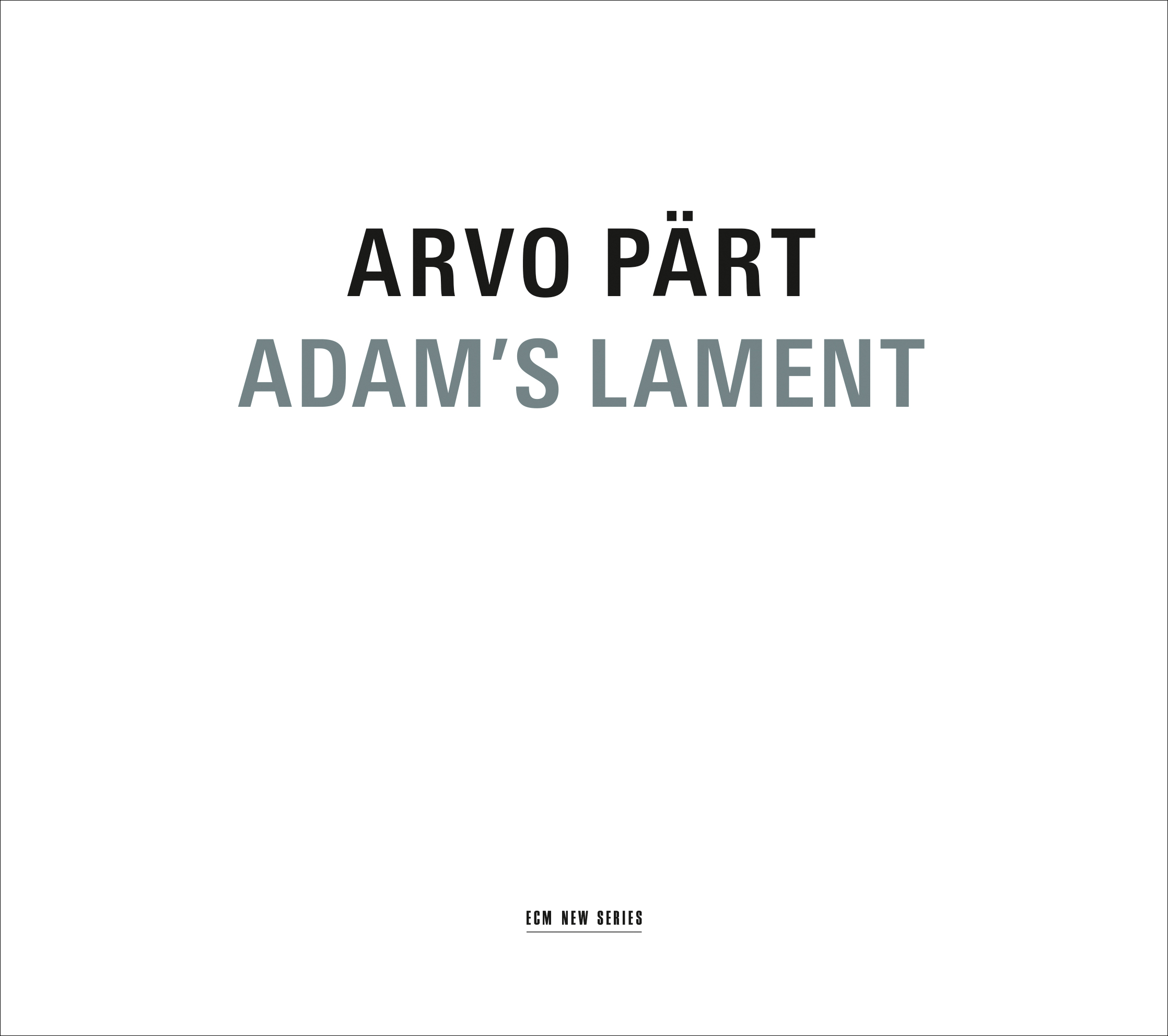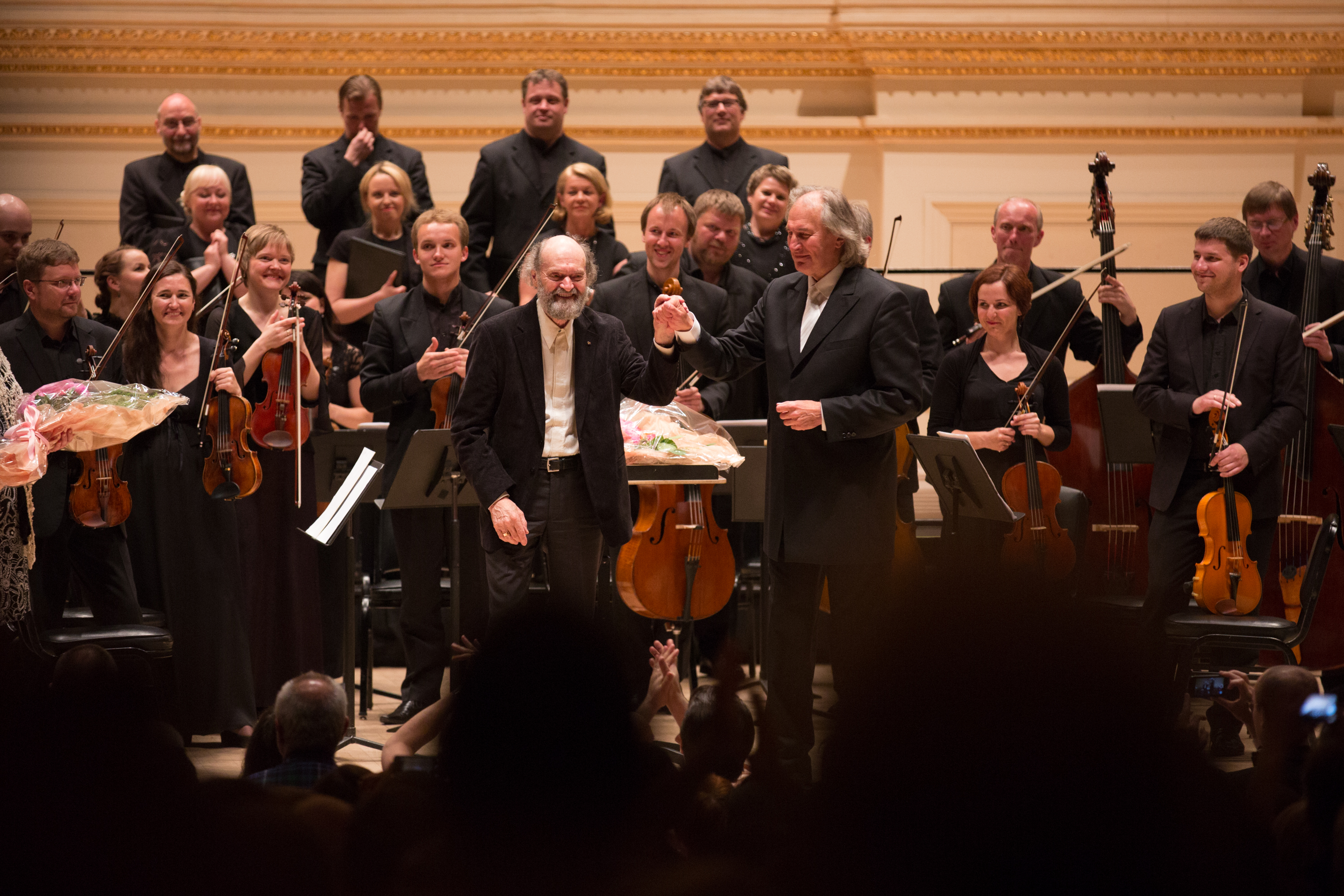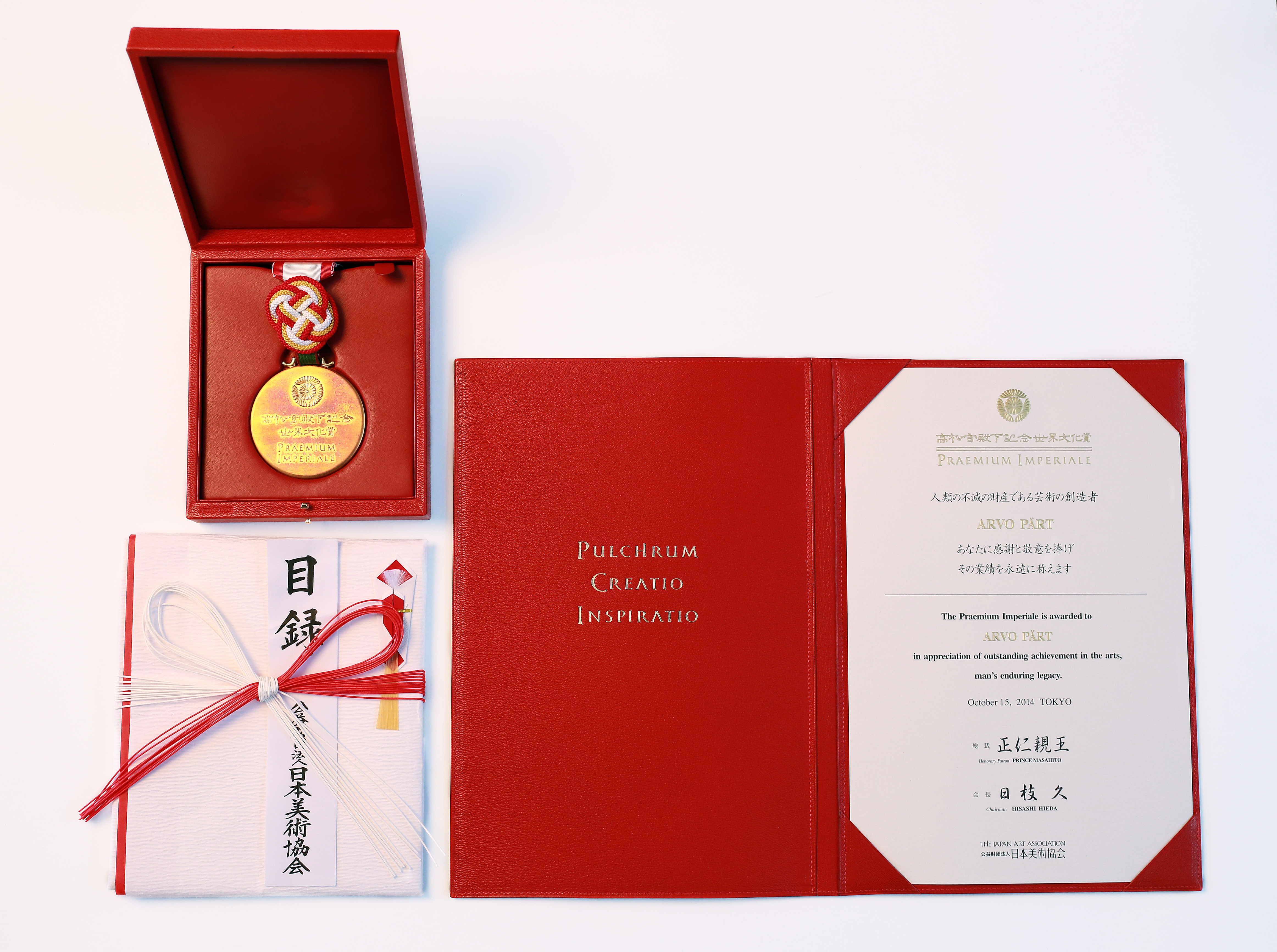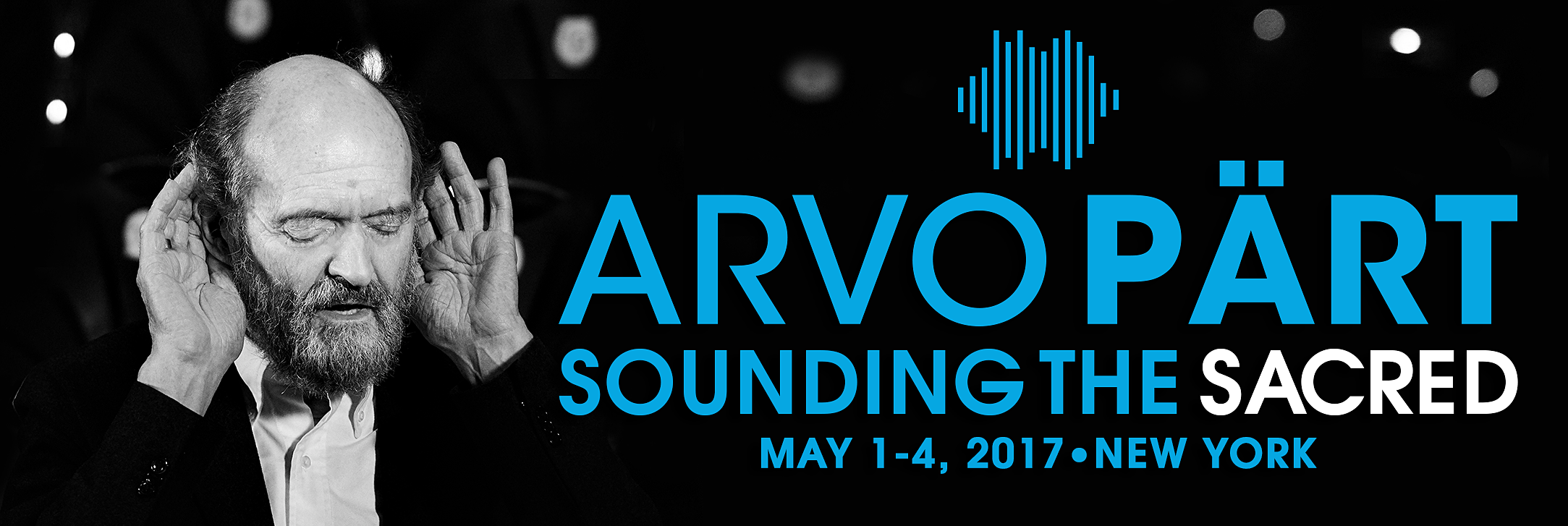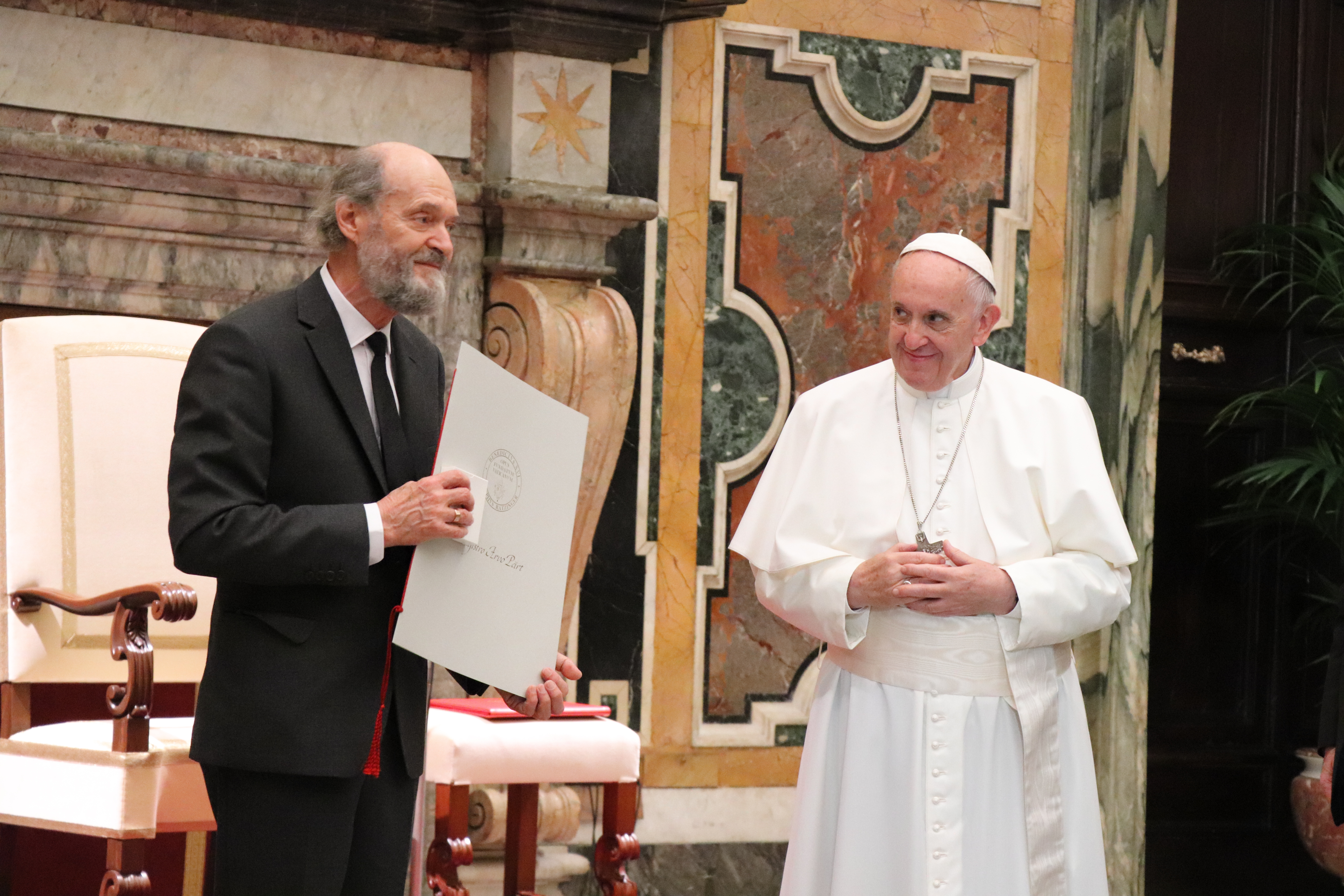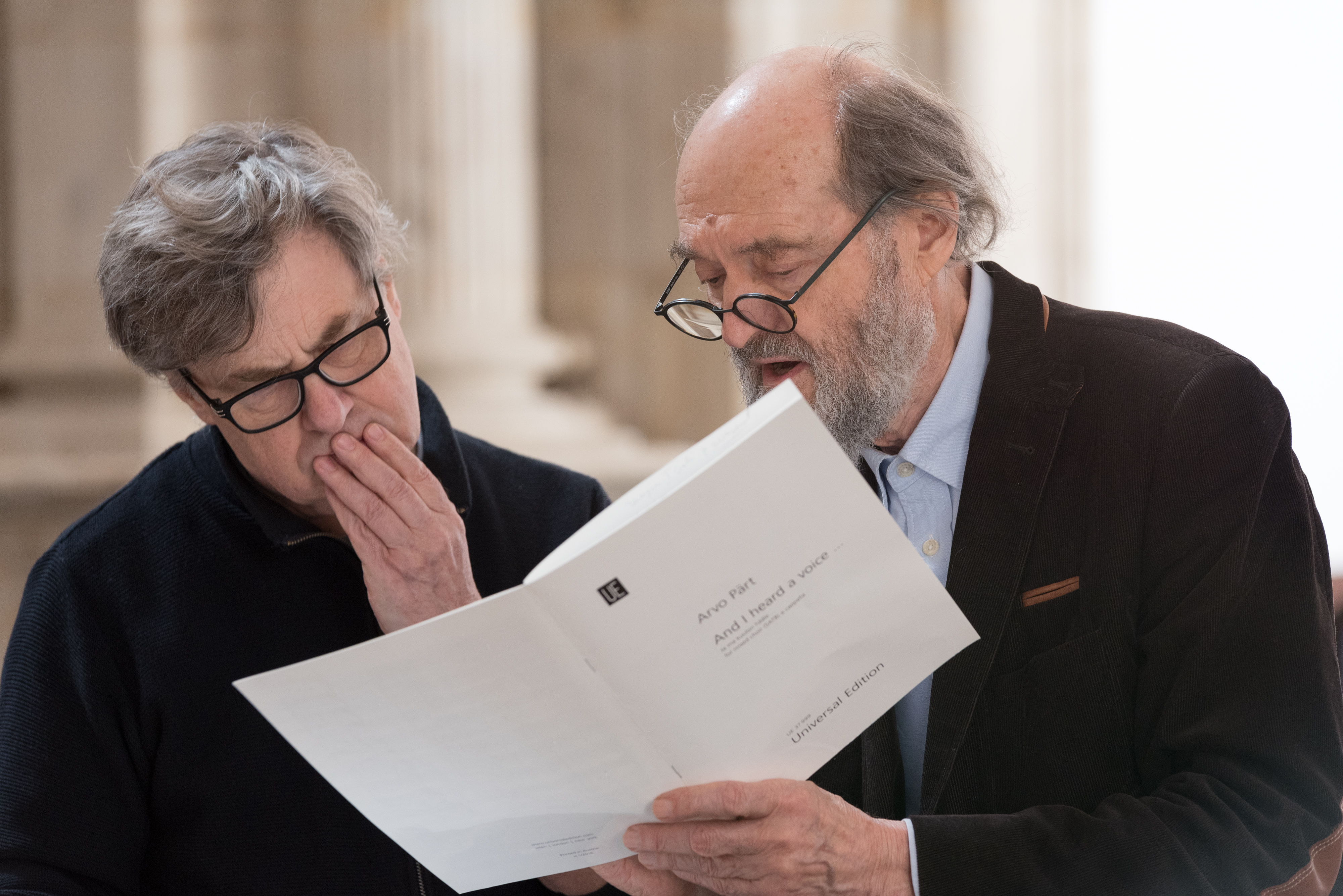Timeline
- 1935
-
1938
Mother and son left Paide and moved to Rakvere, where Arvo Pärt spent his school years.
-
1945–1953
First attempts at composition, which have unfortunately not been preserved.
-
1950–1954
Played flute and oboe in a wind orchestra conducted by Jaan Pakk, as well as piano and percussion instruments in the school’s dance orchestra.
In his final two years, worked as piano accompanist at Rakvere Music School.
-
1954
Started his studies in composition at Tallinn Music School with Harri Otsa, but could only study with him for a few weeks.
-
1954–1956
Military service in the Soviet Army.
Played oboe, percussion and piano in the military orchestra. Released prematurely from military service due to health reasons. -
1956
In autumn continued his studies at Tallinn Music School with Veljo Tormis, who had only recently received a degree in composition.
The teacher and student soon became good colleagues for life.Worked as a piano accompanist at the theatre club of the Tallinn Palace of Pioneers (presumably until 1959), composing several children’s songs and piano pieces.
-
1957–1963
Composition studies at Tallinn Conservatory with Heino Eller.
According to Pärt himself, he has been deeply influenced by Eller’s teaching style, work ethic and personality.Finished his first compositions, which are included in the composer’s official list of works.
Besides children’s music and neo-classicist works also the dodecaphonic orchestral compositions Nekrolog (1960) and Symphony No. 1 (Polyphonic) (1963; dedicated to Eller). - 1958–1967
-
1961
Joined the Estonian SSR Composers’ Union.
-
1961–1968
Cooperation with the Estonian State Puppet Theatre, composing music for seven puppet shows.
-
1963
With Veljo Tormis and other young musicians attended the Warsaw Autumn festival of contemporary music.
He was acquainted with avant-garde music and composers, Luigi Nono among others. After returning from the festival, he composed the orchestral work Perpetuum mobile, which he dedicated to Nono. The composition received a very warm reception at its premiere at the 1965 Warsaw Autumn festival and the audience requested a repeat performance. -
1966
Lengthy stay in hospital due to acute health problems.
-
1967
Quit his job at Estonian Radio in the autumn due to health reasons and has been working as a freelance composer ever since.
-
1968
Participated in a happening at the Tallinn Writers’ House with Kuldar Sink, Toomas Velmet and other musicians, artists and writers.
A violin that was accidentally set on fire on stage caused a scandal after which Arvo Pärt too had to write an explanatory note.Premiere of Credo in November
Estonian Radio Choir and Orchestra, Mart Lille (piano), Neeme Järvi (conductor). This is the composer’s most dramatic collage with the confrontation of two musical worlds – Bach’s prelude in C Major (WTC 1) and Pärt’s own dodecaphonic music. Credo received a fiery reception in the concert hall and the audience requested a repeat performance. However, an open affirmation of Christian faith was not officially accepted in Soviet Estonia, and so the composition was hushed up and further performances were banned. -
1969–1976
Withdrawal from public life and period of searching; development of a new artistic expression.
Pärt abandoned modern composition techniques, studied Gregorian chant, the music of the Notre Dame school and Renaissance polyphony. Symphony No. 3 from 1971 is the only composition from that period in his official list of works. -
1972
Joined the Orthodox Church.
-
1976
Birth of a new musical language.
In February, Pärt sketched a small two-part piece in his notebook, which was performed in March by Rein Rannap on piano under the title Für Alina.In October, the Hortus Musicus ensemble of early music, conducted by Andres Mustonen, performed Pärt’s works composed in the new style, such as Pari intervallo, In spe, Für Alina and others.
For the very first time they were associated with the term tintinnabuli, which became the name of Pärt’s style and composition technique. -
1977
A creatively prolific year, with the completion and premiere of several compositions in the tintinnabuli style.
Pärt’s most performed works to this day: Cantus in Memory of Benjamin Britten, Fratres, Summa, Tabula rasa and others.The premiere of the Tabula rasa double concerto in Tallinn.
Performed by Gidon Kremer (violin), Tatiana Grindenko (violin), Alfred Schnittke (piano) and RAT Estonia Chamber Orchestra conducted by Eri Klas, turned out to be an extraordinary musical event which opened the door for the reception and spread of Pärt’s tintinnabuli works outside Estonia. - 1978
-
1979
At the XI Congress of the Estonian SSR Composers' Union in February, Pärt gave a spontaneous speech wearing a long wig. He ironically thanked the authorities for two honorary titles.
Half a year earlier he had been awarded the title of Merited Art Worker of the Estonian SSR; however, in December he was detained as a dissident at Moscow airport on his way to a premiere of his composition in London. Pärt’s speech only confirmed his image as persona non grata in Soviet Estonia and resulted with the “recommendation” from the authorities to take his family and leave the country.Excluded from the Estonian SSR Composers’ Union in November.
-
1980
In January, the Pärt family was forced to emigrate from Estonia.
The Estonian media called the composer “a traitor of the fatherland” and performances of his works in concert halls and on radio were officially banned. -
1981
Pärts were given Austrian citizenship.
Arvo Pärt awarded a grant from the German Academic Exchange Service (DAAD – Deutscher Akademischer Austausch Dienst) and the family moved to Berlin, where they stayed for almost 30 years.
-
1982
Passio Domini nostri Jesu Christi secundum Joannem.
Composed as a commission for the Bavarian Radio, premiered in Munich by the Bavarian Radio Chorus, soloists, instrumental ensemble and organ, conducted by Gordon Kember. - 1984
-
1985
Stabat Mater, completed as a commission for the Alban Berg Foundation.
Premiered in Vienna by the Hilliard Ensemble, Gidon Kremer (violin), Nabuko Imai (viola) and David Geringas (cello).Te Deum, premiered in Cologne by the Cologne Radio Choir and Orchestra conducted Dennis Russell Davies.
- 1987
-
1989
Miserere, composed as a commission for the d’Eté de Seine-Maritime Festival.
Premiered at the festival in Rouen by the Hilliard Ensemble, Western Wind Choir and an instrumental ensemble, conducted by Paul Hillier.First visit to his home country since emigration.
-
1989–2013
11 Grammy nominations, mainly in the category of Best Contemporary Composition.
-
1990
Berliner Messe, completed for the 90th Katholikentag in Berlin.
Premiered in Berlin by Theatre of Voices conducted by Paul Hillier. -
1991
Honorary membership of the Royal Swedish Academy of Music.
Silouan’s Song, commissioned by Svenska Rikskonserter.
Premiered in Rättvik, Sweden by the chamber orchestra of the Musik vid Siljan festival conducted by Karl-Ove Mannberg. - 1993
-
1994
Litany, premiered in Eugene, USA.
By the Hilliard Ensemble and the Oregon Bach Festival Chorus and Orchestra, conducted by Helmuth Rilling. -
1995
Arvo Pärt festival consisting of ten concerts in Stockholm.
-
1996
Honorary membership of the American Academy of Arts and Letters, New York.
Dopo la vittoria, commissioned by the City of Milan to commemorate 1,600 years since the death of Saint Ambrose.
Premiered in Milan in 1997 by the Swedish Radio Choir conducted by Tõnu Kaljuste. - 1997
-
1998
Como cierva sedienta, commissioned by the Festival de Música de Canarias.
Premiered at the 1999 festival by Patricia Rozario and the Copenhagen Philharmonic Orchestra, conducted by Okko Kamu. -
1999
Cantique des degrés, commissioned by the Princess of Hanover for the 50th anniversary of the reign of Rainier III, Prince of Monaco.
Premiered in Monaco Cathedral by the Monte Carlo Opera Choir and Monte Carlo Philharmonic Orchestra, conducted by Tõnu Kaljuste. -
2000
Cecilia, vergine romana, composed as a commission for Agenzia Romana for the events of Holy Year 2000 in Rome.
Premiered in Rome by the Choir and Orchestra of the Accademia Nazionale di Santa Cecilia, conducted by Myung-Whun Chung.Herder Award (Germany).
- 2002
-
2003
Classic Brit Award – Contemporary Music Award for Orient & Occident
Honorary title of Borderlander given by the Borderland Foundation and a one-week festival in Sejny, Poland, dedicated to Pärt’s work.
In principio, commissioned by the Graz-Seckau Espicopacy for the programme Graz 2003 – Cultural Capital of Europe.
Premiered by Pro Musica Graz choir and Capella Istropolitana, conducted by Michael Fendre. - 2004
-
2005
La Sindone, composed as a commission for the Settembre Musica festival for the Olympic Winter Games 2006 in Turin.
Premiered in Turin Cathedral by the Estonian National Symphony Orchestra conducted by Olari Elts.Reinstated as a member of the Estonian Composers’ Union.
European Church Music Award (Germany).
Composer of the Year honorary title by Musical America magazine.
-
2006
First class Order of the National Coat of Arms of the Estonian Republic.
-
2007
CD Da pacem (Estonian Philharmonic Chamber Choir, conductor by Paul Hillier; Harmonia Mundi) won a Grammy Award in the category of Best Choral Performance.
Honorary Doctorate in Theology from Freiburg University (Germany).
International Brückepreis award from the Town of Europe, Görlitz/Zgorzelec.
-
2008
Léonie Sonning Music Prize (Denmark) – Pärt composed These words… for the award ceremony as a commission for the Léonie Sonning Music Foundation.
The work was premiered in Copenhagen by the Danish National Radio Symphony Orchestra conducted by Tõnu Kaljuste.Symphony No. 4 (Los Angeles).
Premiered in 2009 in the Walt Disney Concert Hall, USA, by the Los Angeles Philharmonic Orchestra conducted by Esa-Pekka Salonen.Stabat Mater, new version for mixed choir and string orchestra, composed as a commission for the Tonkünsler Orchestra of Lower Austria.
Premiered in Musikverein Vienna by Tonküstler Orchestra and Wiener Singverein, conducted by Kristjan Järvi.Austrian Cross of Honour for Science and Art, First Class.
-
2009
Cultural award of the Republic of Estonia for long-term distinguished activity.
-
2010
Returned to live in Estonia.
The Arvo Pärt Centre and the composer’s personal archive established in Laulasmaa, Estonia.
Adam’s Lament, commissioned by the Cultural Capital Istanbul 2010 and Tallinn 2011.
Premiered in Hagia Irene church and concert hall, Istanbul, by the Estonian Philharmonic Chamber Choir, Vox Clamantis and Borusan Istanbul Philharmonic Orchestra, conducted by Tõnu Kaljuste.Lifetime Achievement Award from the 38th International Istanbul Music Festival.
Celebrations of Pärt’s 75th birthday include three international conferences.
Arvo Pärt and Contemporary Spirituality Conference at Boston University, Arvo Pärt: Soundtrack of an Age at London’s Southbank Centre and The Cultural Roots of Arvo Pärt’s Music at the Estonian Academy of Music and Theatre.The first Arvo Pärt festival weeks during Nargenfestival; from 2011 the event is organised under the title Arvo Pärt Days.
-
2011
Classic Brit Award – Composer of the Year honorary title for Symphony No. 4.
Honorary Doctorate of the Pontifical Institute for Sacred Music, Vatican.
Chevalier degree of the French Order of the Legion of Honour.
First ever Academician for Music by the Estonian Academy of Sciences.
Member of the Pontifical Council for Culture, Vatican.
-
2012
Virgencita, for mixed choir a cappella.
Premieres in León, Guanajuato and Mexico City by the Estonian Philharmonic Chamber Choir conducted by Tõnu Kaljuste. Award from the Cervantino International Festival, Mexico.Estonian Music Council Composition Award.
Honorary Doctorate in Theology from University of Lugano (Switzerland).
- 2013
-
2014
CD Adam’s Lament won a Grammy Award in the category of Best Choral Performance.
Premiered by Sinfonietta Riga, Latvian Radio Choir, Vox Clamantis, Tallinn Chamber Orchestra, Estonian Philharmonic Chamber Choir, Tui Hirv, Rainer Vilu, conductor Tõnu Kaljuste; ECM.Swansong, new version of Littlemore Tractus for orchestra, composed as a commission for the Mozartwoche festival.
Premiered at the festival in Salzburg by Vienna Philharmonics conducted by Marc Minkowski.Arvo Pärt Project: concerts of Arvo Pärt’s works in Washington and New York’s Carnegie Hall and Metropolitan Museum.
Performed by the Estonian Philharmonic Chamber Choir, Tallinn Chamber Orchestra and Yxus Ensemble, conducted by Tõnu Kaljuste.Honorary Doctorate from St. Vladimir’s Orthodox Seminary, USA.
Honorary membership of the International Society of Contemporary Music (ISCM).
-
2015
Premiere of a stage production by Robert Wilson based on the music of Arvo Pärt in Noblessner Foundry, Tallinn.
Music director and conductor Tõnu Kaljuste. The stage production is based on Pärt’s Adam’s Lament, Tabula rasa and Miserere entwined with Sequentia composed specifically for this production.Songs from Childhood, the Archive project of the Arvo Pärt Centre.
In cooperation with Estonian Public Broadcasting, Children’s Music Studio of Estonian Radio, Tauno Aints (arranger) and Kadri Hunt (conductor), which resulted in a CD and sheet music for Arvo Pärt’s children’s songs.Kleine Litanei for mixed choir a cappella.
Commissioned by Wien Museum for the reopening of the Chapel of St. Virgil beneath Stephansplatz, performed by the Arnold Schoenberg Choir conducted by Erwin Ortner.First Class Cross of Merit of the Estonian Evangelical Lutheran Church.
Austrian Decoration for Science and Art.
-
2016
Greater Antiphons, commissioned by the Los Angeles Philharmonic Orchestra.
Premiered at the Mozart & Pärt Festival in Los Angeles by LA Philharmonic Orchestra conducted by Gustavo Dudamel.Honorary Doctorate from the University of Oxford.
Pontifical Council for Culture (Poland) medal Per Arte ad Deum.
-
2017
Four-day conference Arvo Pärt. Sounding the Sacred in New York.
Organised by St. Valdimir’s Orthodox Seminary and the Fordham University’s Orthodox Christian Studies Center.Arvo Pärt awarded the Ratzinger Prize (Vatican).
At the presentation of which the composer had the opportunity to meet both Pope Francis and Pope Emeritus Benedict XVI.And I heard a voice… / Ja ma kuulsin hääle… for mixed choir a cappella, commissioned by the University of Salamanca and the Spanish National Music Development Office.
Premiered in February 2018 in Salamanca by Ars Nova Copenhagen ensemble conducted by Paul Hillier. The most recent composition in Arvo Pärt’s list of works. -
2018
Weekend dedicated to Arvo Pärt’s music in the Flagey Concert House in Brussels to celebrate the 100th anniversary of the Republic of Estonia
Opening of the new building of the Arvo Pärt Centre in Laulasmaa in October.
1930
1931
1932
1933
1934
1935
1936
1937
1938
1939
1940
1941
1942
1943
1944
1945
1946
1947
1948
1949
1950
1951
1952
1953
1954
1955
1956
1957
1958
1959
1960
1961
1962
1963
1964
1965
1966
1967
1968
1969
1970
1971
1972
1973
1974
1975
1976
1977
1978
1979
1980
1981
1982
1983
1984
1985
1986
1987
1988
1989
1990
1991
1992
1993
1994
1995
1996
1997
1998
1999
2000
2001
2002
2003
2004
2005
2006
2007
2008
2009
2010
2011
2012
2013
2014
2015
2016
2017
2018
2019
2020
